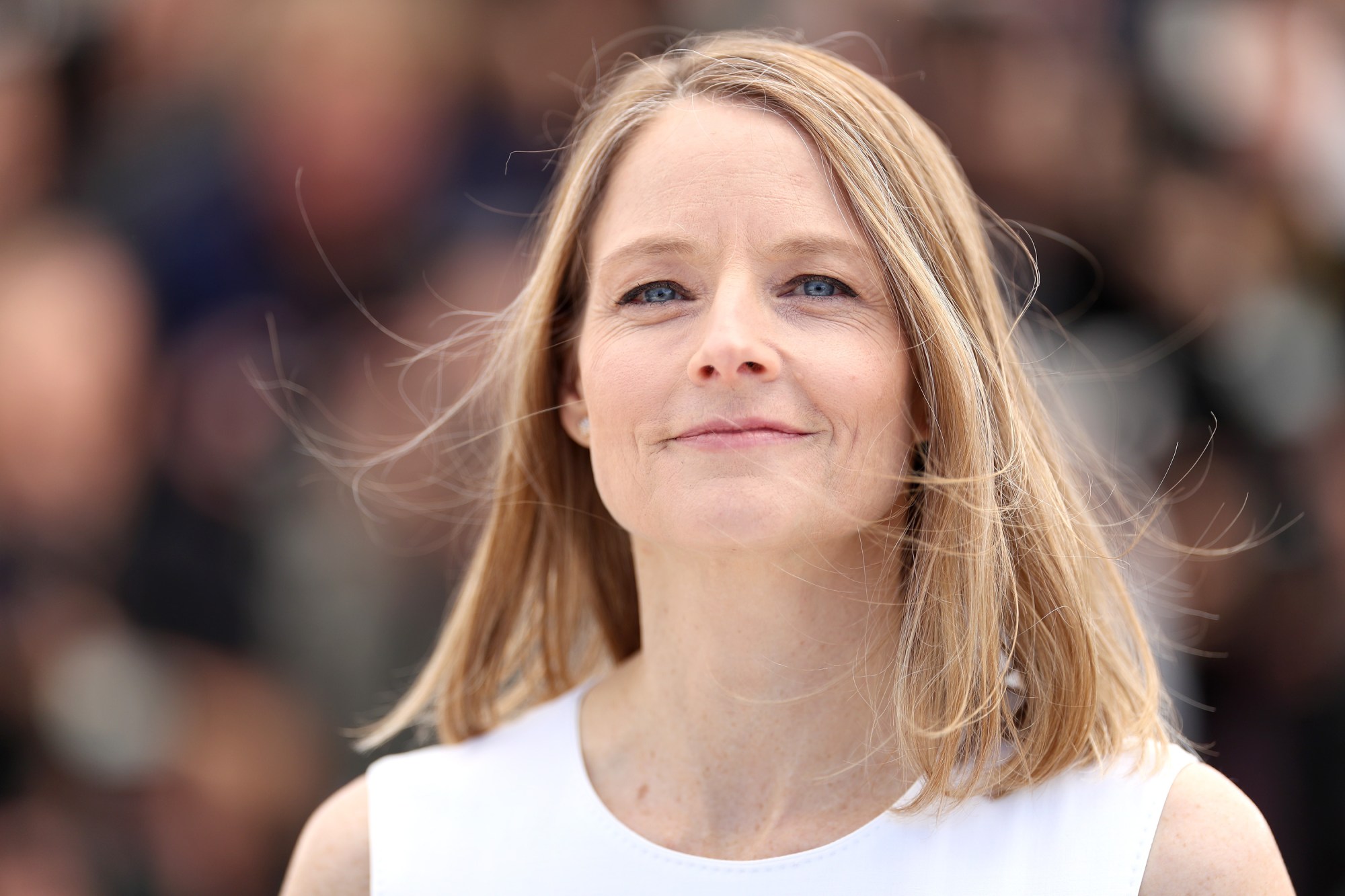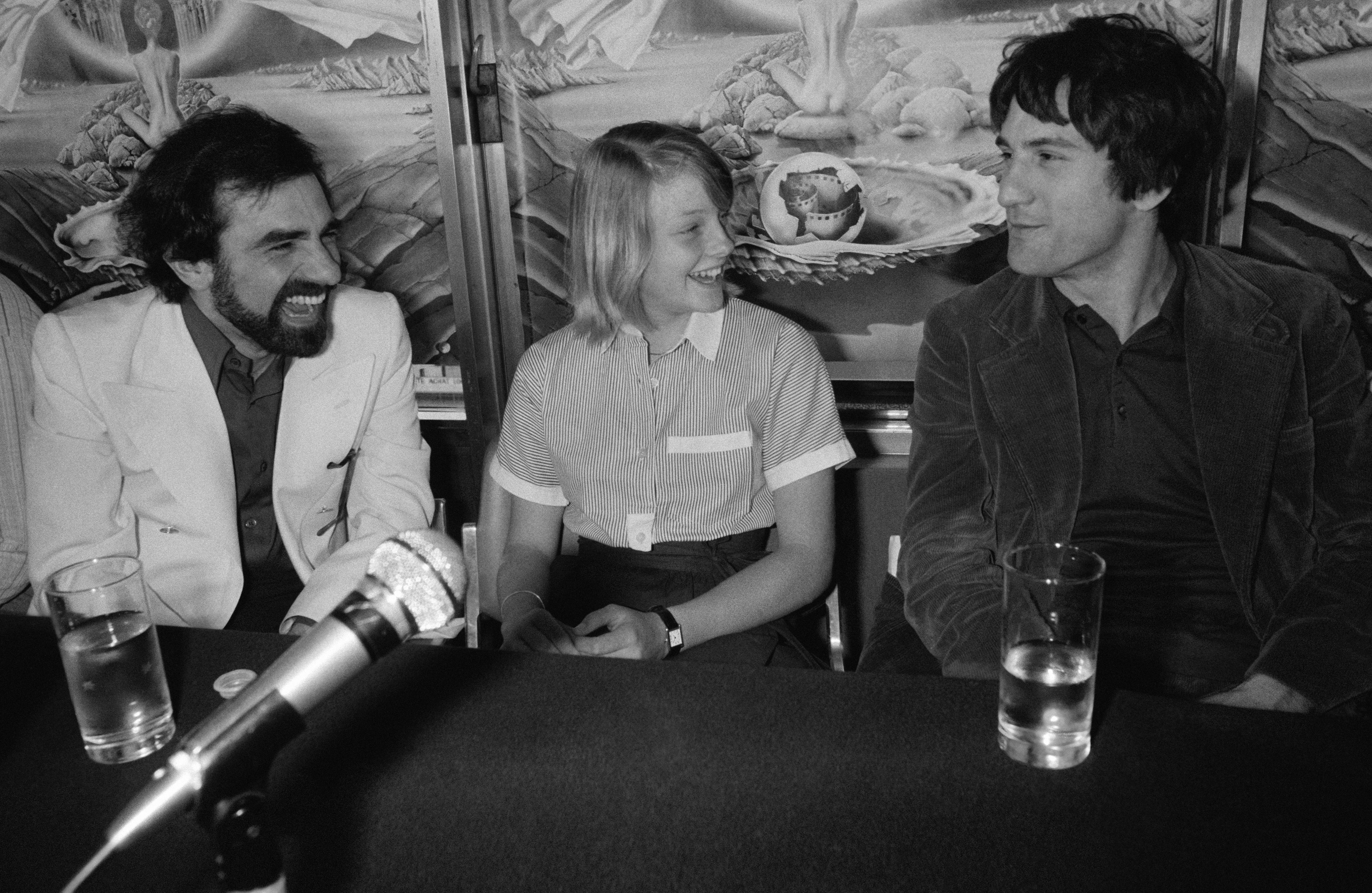
- Festivals
Jodie Foster: Back in Cannes
The first time Jodie Foster climbed the famous steps of the Palais du Festival was in 1976 and the 13-year old actress was here for Taxi Driver : a child actress in a history making film. 40 years later Foster is back in Cannes to promote her latest directorial effort, Money Monster, a fast-paced thriller starring George Clooney and Julia Roberts shown out of competition here. The film is about a financial TV host (Clooney) and his producer (Roberts) who during a broadcast are confronted by an angry and desperate investor who has lost everything. When he busrts ino the studio and takes the host hostage on live TV, a tense and unpredictable standoff ensues.
Foster, probably Hollywood’s only truly fluent French speaker, is no stranger to the Croisette or the culture here, although the last time she was part of a Hollywood film was 3-years ago when she starred in the sci-fi epic Elysium, opposite Matt Damon. “I’m not in the spotlight,” she demurs, re-directing the attention to the stars of her film. “I am so in awe of Julia. She is extraordinary. I feel so lucky that she landed on our doorstep. And with George, it was a tough movie with a lot of dialogue so he had a lot of work to do.” She laughs. “One of the things I love about him is that he wears the same t-shirt and the same jeans pretty much every day. He has ten of the same thing. He’s always on time, the first person to get there and he’s a worker bee.”

Jodie Foster with Martin Scorsese and Robert DeNiro in Cannes, 1976.
Getty Images
Jodie Foster – 53, two-time Golden Globe and Oscar winner, Cecil B. deMille Award recipient,Yale graduate, and mother of two – is probably the celebrity most often cited by other movie stars as the star they wish to emulate. A childhood star who began working as a model at age 3 as the bare-bottomed Coppertone girl, Foster went onto work in TV as an actress in sitcoms such as Mayberry R.F.D. Her breakthrough role came at age 14 playing a child prostitute in Martin Scorsese’s Taxi Driver, which earned her first Academy Award nomination. Foster worked consistently during her teens in movies including Bugsy Malone and Freaky Friday (both 1976) and Foxes (1980). And then she did the unthinkable, turning her back on Hollywood to complete a degree at Yale. Fame was not high on her agenda.
“I don’t measure myself by this external idea of ‘I am valuable because I’m famous,’ or, ‘I’m valuable because I have this money or this car or this job,’” she says.
Life post-Yale saw Foster struggling to get back into movies once she had transitioned from child to an adult actor. But she would soon find herself at the pinnacle of her profession. Life changed when she was cast as a rape survivor in The Accused (1988) and followed with The Silence of the Lambs (1991) both earned her a Golden Globe and an Oscar. She then stepped behind the camera to direct Little Man Tate (1991), started a production company, Egg Pictures, in 1992, and directed Home for the Holidays (1995). During this time she kept acting in movies including Maverick (1994) and Contact (1997) and also starred in David Fincher’s Panic Room (2002), Flight Plan (2005), Inside Man (2006) and The Brave One (2007).
Foster took some time off to raise her sons: Charles ‘Charlie,’ born in 1998, and Christopher ‘Kit, ‘ born in 2001. Do they show signs of following in her footsteps? “I don’t think so. My older son likes acting and improv but I don’t think that’s where he’ll go, but maybe,” she says.
Foster remains one of the few female directors in Hollywood though her attitudes are not gender-biased. “Hopefully there will be more female directors and I look forward to a time when we don’t have to have these conversations anymore. I always say that the best female director I have worked with is Jonathan Demme (Silence of the Lambs). He has a feminine sensibility and he is a mom figure,” she says. “He is somebody I would run to for a film about feelings, whereas Kathryn Bigelow (The Hurt Locker) has proved to be an extraordinary male action-driven filmmaker.”
For all her deserved accolades, Foster talks about the achievements of which she is most proud. “We are always looking for proof. An Oscar statuette or a pile of money but the things that are most meaningful to me, like the relationship with your children or going through the death of somebody you love, are like dust. They are things that I don’t have any pictures of to prove that they happened.” In a culture where everything is documented, Instagrammed, Facebooked and Tweeted, Foster is a true anomaly.
The warm reception Cannes reserved for her on the fabled montée des marches is a testament to the love and respect she still engenders.

